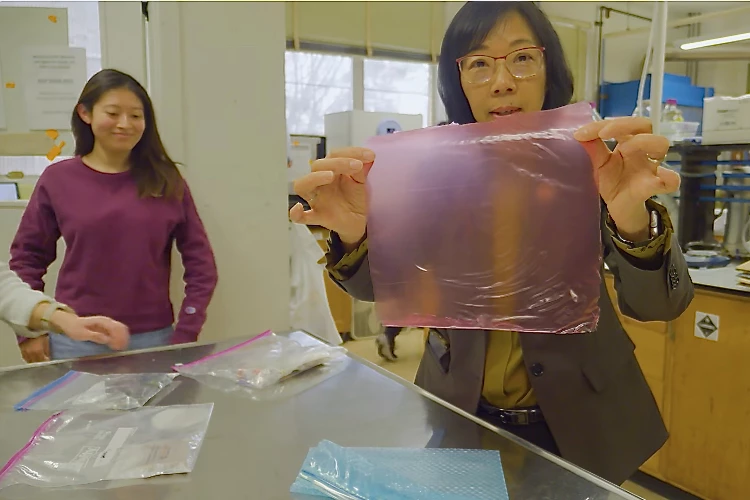When vineyards are exposed to wildfire smoke, the grapes may absorb compounds which end up detracting from the flavor of the wine. A new spray-on grape coating could help, however, keeping wines from being described as possessing "a hint of burning forest."
The nontoxic, edible solution was developed by scientists at Oregon State University, who were prompted to do so after the 2020 Pacific Northwest wildfires caused many vineyard owners in the region to discard their crops.
Among other things, the liquid contains cellulose nanofibers, chitosan and beta-cyclodextrin. It simply gets sprayed onto grapes while they're still on the vine, then left to dry into a film. When wildfire smoke subsequently drifts over the grapes, that film blocks smoke-taint-producing compounds known as volatile phenols from reaching the underlying fruit.
It's important to note that the compounds are blocked by the film, as opposed to being absorbed by it. This means that the coating does not have to be washed off when the grapes are harvested, saving time, effort and water.

In vineyard tests performed so far over a course of two years, application of the coating was found to have no effect on the growth or quality of grapes. Wine made from some of the grapes is currently being assessed for flavor, bouquet and other characteristics.
"Wildfire smoke is an increasing problem for wineries in the United States and around the world, and right now vineyard managers really have no tools to manage the effects of the smoke," said Oregon State associate professor of enology, Elizabeth Tomasino. "This coating has the potential to transform the wine industry."
A paper on the research, which was led by Prof. Yanyun Zhao, was recently published in the Journal of Agricultural and Food Chemistry.
Source: Oregon State University




